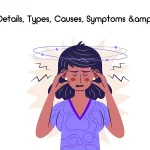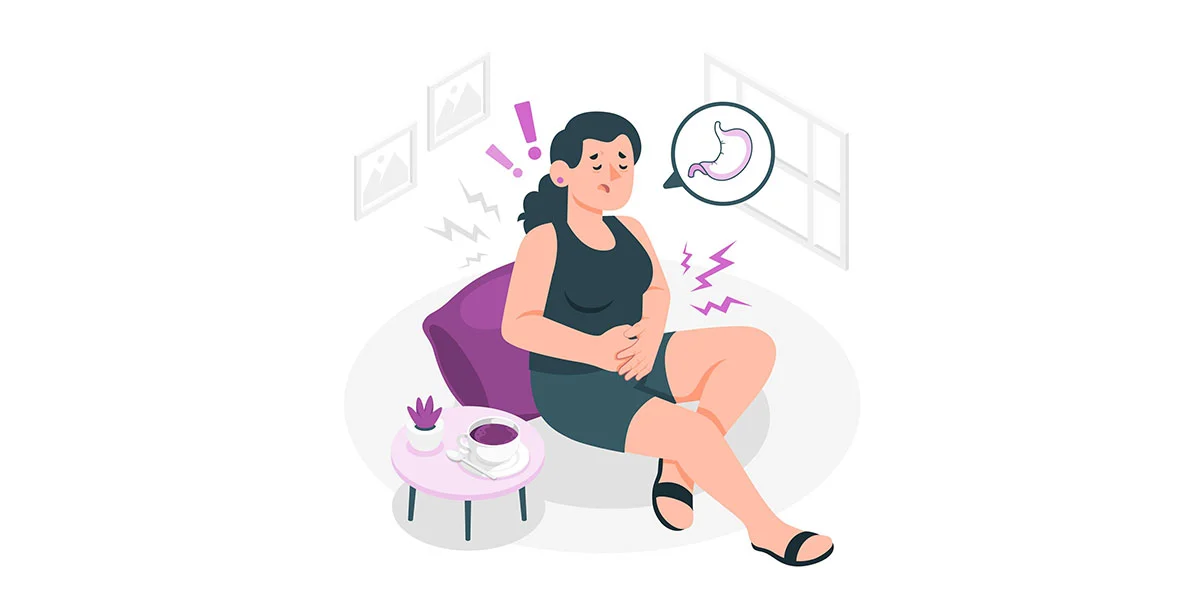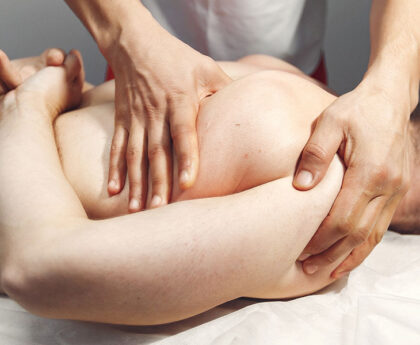Vertigo is a sensation of spinning or feeling like the world around you is moving when it is not. It is often described as a sense of dizziness or imbalance. Vertigo is not a condition itself but rather a symptom of an underlying issue affecting the balance and equilibrium system in the inner ear or the brain.
Common causes of vertigo include:
- Benign Paroxysmal Positional Vertigo (BPPV): This is the most common cause of vertigo and occurs when small calcium crystals in the inner ear become dislodged and stimulate the balance organs during certain head movements.
- Vestibular Neuritis: Inflammation of the vestibular nerve, usually caused by a viral infection, can lead to sudden and severe vertigo.
- Meniere’s Disease: A disorder of the inner ear that causes recurrent episodes of vertigo, hearing loss, tinnitus (ringing in the ears), and a feeling of fullness in the ear.
- Labyrinthitis: Inflammation of the inner ear labyrinth, often due to a viral or bacterial infection, can cause vertigo, hearing loss, and imbalance.
- Migraine-associated Vertigo: Some individuals with migraines may experience episodes of vertigo, also known as vestibular migraines.
- Trauma or Head Injury: A blow to the head or other traumatic events can affect the balance centers in the inner ear or the brain, leading to vertigo.
- Stroke or TIA (Transient Ischemic Attack): A disruption of blood flow to the brain can cause sudden vertigo, among other neurological symptoms.
- Multiple Sclerosis: This autoimmune disorder can affect the nerves in the brain and spinal cord, leading to vertigo in some cases.
Treatment for vertigo depends on the underlying cause. Some cases may resolve on their own over time, while others may require specific medical interventions.
Common treatments for vertigo include:
- Vestibular Rehabilitation Therapy: This is a type of physical therapy that helps train the brain to compensate for the imbalanced signals coming from the inner ear.
- Medications: Certain medications, such as antihistamines, antiemetics, or benzodiazepines, may be prescribed to alleviate symptoms or manage underlying conditions.
- Epley Maneuver: This is a series of head movements performed by a healthcare provider to reposition the displaced calcium crystals in BPPV.
- Avoiding Triggers: If vertigo is associated with migraines or certain triggers, identifying and avoiding these triggers can help manage symptoms.
- Surgery: In severe cases or when other treatments are ineffective, surgery may be considered.
If you experience episodes of vertigo or dizziness, it is essential to seek medical evaluation to determine the underlying cause and receive appropriate treatment. Vertigo can significantly impact daily life and may be a symptom of a more serious condition that requires medical attention.
Preventing vertigo can be challenging, as it often depends on the underlying cause of the condition. However, there are some general strategies and lifestyle changes that may help reduce the risk of vertigo episodes or manage certain types of vertigo.
Here are some preventive measures:
- Stay Hydrated: Dehydration can exacerbate certain forms of vertigo, so it’s essential to maintain adequate hydration by drinking plenty of water throughout the day.
- Avoid Triggers: If you have identified specific triggers for your vertigo episodes, such as certain foods, caffeine, alcohol, or particular head movements, try to avoid them whenever possible.
- Manage Stress: Stress and anxiety can worsen certain types of vertigo, so learning and practicing stress-reduction techniques like relaxation exercises, meditation, or yoga can be helpful.
- Limit Salt Intake: For individuals with Meniere’s disease, reducing salt intake may help manage fluid retention in the inner ear and reduce the frequency and severity of vertigo attacks.
- Modify Head Positions: If you have been diagnosed with benign paroxysmal positional vertigo (BPPV), avoiding certain head positions or using caution when changing positions can help prevent episodes. Sleeping with an extra pillow may be helpful.
- Be Cautious with Medications: Some medications can cause or worsen vertigo. If you experience dizziness or vertigo as a side effect of any medication, speak with your doctor to discuss alternatives.
- Limit Alcohol and Caffeine: Both alcohol and caffeine can affect the balance and equilibrium systems, so limiting their consumption may help prevent vertigo episodes in some individuals.
- Regular Exercise: Engaging in regular physical activity can help improve balance and reduce the risk of falls, especially for older adults prone to balance issues.
- Avoid Rapid Head Movements: Quick head movements can trigger vertigo in some individuals, so be cautious when turning or bending down.
- Vestibular Rehabilitation Therapy (VRT): If you have recurrent vertigo due to an imbalance in the vestibular system, VRT can help train the brain to adapt and improve balance.
- Address Underlying Health Conditions: If your vertigo is associated with a specific medical condition, such as migraine, Meniere’s disease, or vestibular neuritis, follow your doctor’s recommendations for managing that condition.
It’s important to remember that preventive measures for vertigo may vary depending on the underlying cause, and not all preventive strategies will be effective for every individual. If you experience frequent or severe vertigo episodes, it’s essential to seek medical evaluation to determine the cause and receive appropriate management and treatment.
Vertigo Risk Factors
Vertigo can affect people of all ages, but certain factors may increase the risk of experiencing vertigo episodes. These risk factors can be related to various underlying causes of vertigo.
Some common risk factors include:
- Age: The risk of certain types of vertigo, such as benign paroxysmal positional vertigo (BPPV) and Meniere’s disease, tends to increase with age.
- Inner Ear Disorders: Individuals with conditions affecting the inner ear, such as Meniere’s disease, vestibular neuritis, or labyrinthitis, are at a higher risk of experiencing vertigo.
- Migraine History: People with a history of migraines, especially vestibular migraines, may have an increased risk of experiencing vertigo episodes.
- Head or Neck Injuries: Traumatic head injuries or injuries to the neck region can damage the vestibular system and increase the risk of vertigo.
- Certain Medications: Some medications can cause or exacerbate vertigo as a side effect, including certain antibiotics, anticonvulsants, and certain blood pressure medications.
- Infections: Viral or bacterial infections affecting the inner ear, such as vestibular neuritis or labyrinthitis, can lead to vertigo.
- Family History: Some types of vertigo, such as Meniere’s disease, may have a genetic component, and a family history of the condition can increase the risk.
- History of Migraines: Individuals with a history of migraines may have a higher risk of experiencing vestibular migraines, which can cause vertigo.
- Exposure to Ototoxic Substances: Certain drugs or chemicals that are toxic to the inner ear can increase the risk of vestibular dysfunction and vertigo.
- Blood Circulation Disorders: Conditions that affect blood flow to the brain, such as atherosclerosis or transient ischemic attacks (TIAs), can be associated with vertigo.
- Anxiety and Stress: High levels of anxiety and stress can trigger or worsen certain types of vertigo, such as vestibular migraines.
- Dehydration: Being dehydrated can worsen vertigo symptoms in some individuals.
It’s important to note that not everyone with these risk factors will experience vertigo, and having one or more of these risk factors does not guarantee that vertigo will occur. Additionally, other factors not listed here may also contribute to an individual’s risk of experiencing vertigo.
If you have any of these risk factors and experience recurrent vertigo episodes or concerning symptoms, it’s essential to seek medical evaluation for proper diagnosis and appropriate management. Identifying the underlying cause of vertigo is crucial for developing an effective treatment plan.
Here’s what you can do while experiencing vertigo:
If you experience vertigo, it’s essential to take certain precautions and follow specific steps to manage the symptoms and prevent injuries.
- Sit or Lie Down: If possible, sit or lie down immediately when you feel the vertigo sensation. This can help prevent falls and reduce the risk of injury.
- Keep Your Head Still: Avoid sudden head movements or quick changes in position, as these can worsen vertigo.
- Focus on a Fixed Point: If you need to move, focus your gaze on a fixed object in front of you. This can help stabilize your vision and reduce the sensation of spinning.
- Breathe Slowly and Deeply: Taking slow and deep breaths can help you relax and may alleviate some of the anxiety that can accompany vertigo.
- Vestibular Maneuvers: For certain types of vertigo, such as benign paroxysmal positional vertigo (BPPV), specific head maneuvers like the Epley maneuver or Brandt-Daroff exercises can help reposition displaced inner ear crystals and relieve symptoms. However, these maneuvers should only be performed under the guidance of a healthcare professional.
- Avoid Triggers: If you have identified certain triggers that exacerbate your vertigo, such as certain head movements or foods, try to avoid them whenever possible.
- Assistance: If you’re unable to move or feel very unsteady, it’s a good idea to have someone nearby who can help you if needed.
- Stay Hydrated: Dehydration can worsen some types of vertigo, so ensure you’re drinking enough water.
- Medications: Depending on the cause of your vertigo, your doctor may prescribe medications to help manage symptoms or treat underlying conditions.
- Vestibular Rehabilitation Therapy (VRT): If you have recurrent vertigo episodes due to an imbalance in the vestibular system, VRT can help train the brain to adapt and improve balance.
- Rest: If your vertigo is severe or debilitating, give yourself time to rest and avoid activities that may worsen symptoms.
It’s essential to remember that not all cases of vertigo are the same, and what works for one person may not work for another. If you experience recurrent or severe vertigo episodes, or if you have concerns about your symptoms, seek medical evaluation. A healthcare professional can help determine the underlying cause of your vertigo and recommend appropriate treatment and management strategies.
Read this Article Also: How to Lower ApoB By Natural Remedies & Specific Exercises
If you don’t like this article/post please share your feedback.





